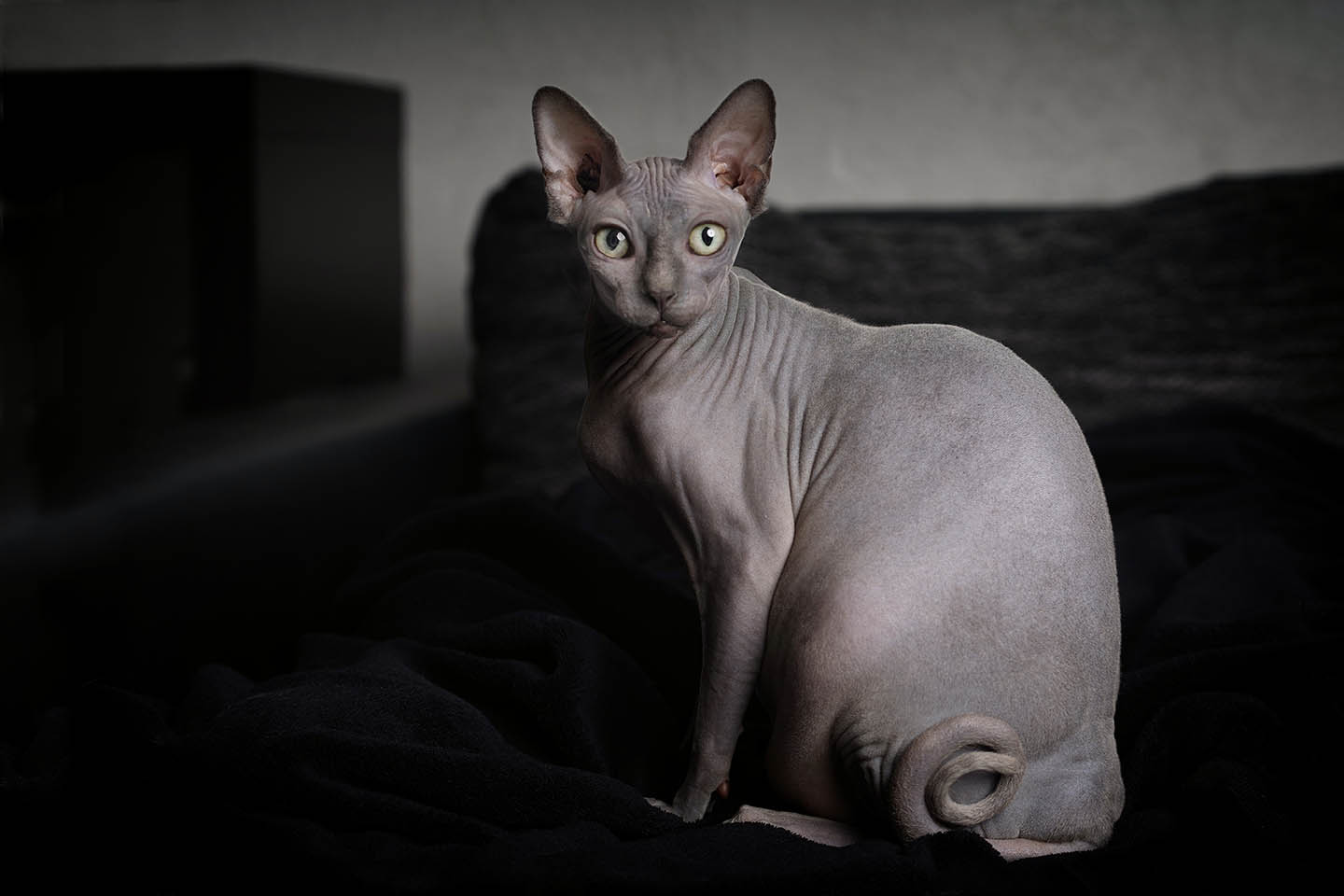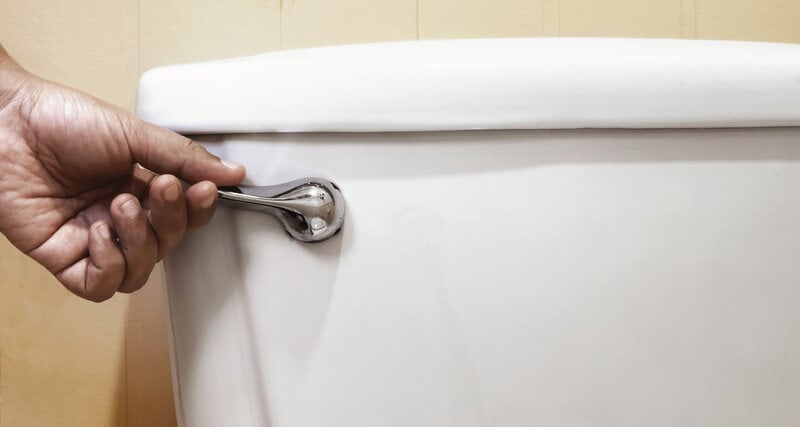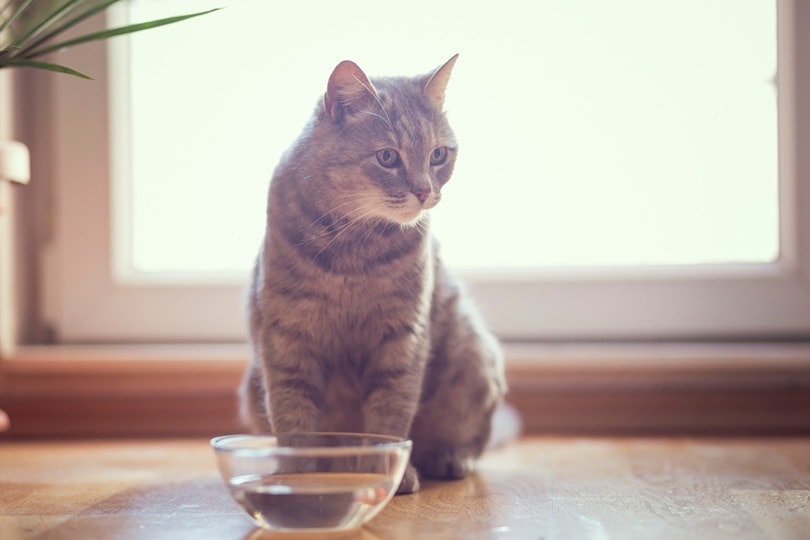Can Cats Eat Mice? Vet-Reviewed Health Facts
By Ashley Bates
Updated on

Cats and mice—the great rivals of the ages. It’s not unusual to see your cat hunting down and stalking mice and other rodents to play or feast. We can also bid them a thank you for inspiring favorites like Tom and Jerry, making childhoods memorable for decades.
But when it comes to your house cats, can they eat a mouse safely? We’re not here to stifle your cat’s natural prey instincts. However, the quick answer here is no, cats shouldn’t ever eat a mouse if you can stop them. We’ll explain in more detail why down below.
Cats & Natural Diets
Cats are obligate carnivores, meaning they need only animal proteins and fats to survive. Animals have everything your cat needs to stay healthy, containing just the right amount of nutrients. So, if your cat ate their natural diets in domestication, it would be perfectly balanced.
However, that’s just not a feasible reality when owning a domestic cat, so pet food companies had to improvise. Cat food is explicitly crafted to meet the dietary needs of cats. However, let’s talk about the types of protein and how they differ.
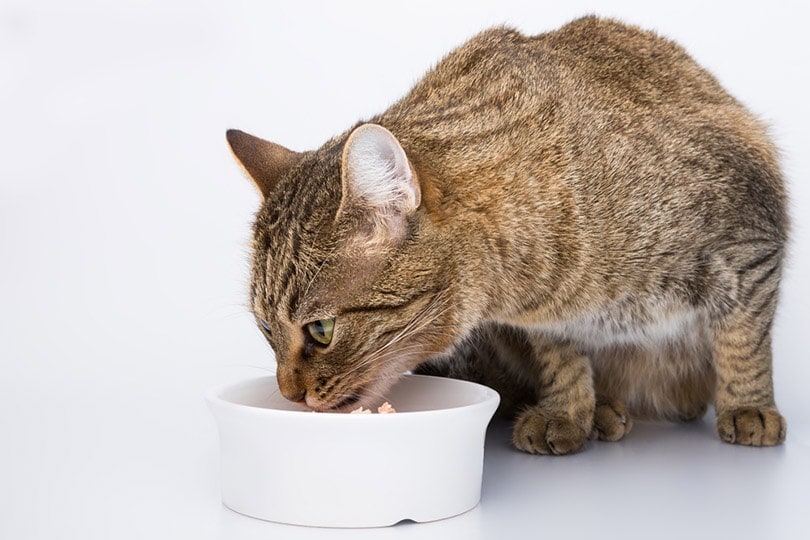
Plant vs. Animal Protein
Cats would naturally eat smaller prey animals like rodents, birds, and fish in the wild. But cat foods usually contain common proteins like chicken, fish, beef, pork, and duck. You wouldn’t see a ferocious feline taking down a cow or pig in the wild—so it’s not 100% spot on, but still specially formulated.
These animal proteins are crucial for cat development and bodily maintenance. Animal proteins are considered complete proteins, containing all the amino acids your cat’s body needs to function. On the other hand, plants have incomplete proteins that don’t contain necessities on their own.
So, it’s apparent that an obligate carnivore would need a high dose of protein. In fact, they would get much more than the minimal 26% protein per meal in the wild.
Mouse Dry Matter Analysis
In this example by PetMD, we can look at the dry matter analysis of a mouse.
| Protein: | 55% |
| Fat: | 45% |
| Carbohydrates: | 5% |
So, as you can see, your cat’s daily protein intake is significantly higher with live prey than dry kibble. Currently, the AAFCO says cats require 30% crude protein during growth and decline and 26% for bodily maintenance. Ideally, it would be much higher in nature.
Thankfully, pet nutritionists and companies strive to learn more about feline diets to accommodate our kitty’s needs better.

Dangers of Cats Eating Mice
Finding dead vermin is quite normal if you have an indoor/outdoor cat with any predatory instinct whatsoever. However, your cat really shouldn’t ever be eating a mouse due to the associated risks.
Choking
Mice have tiny bones that can easily get lodged in a cat’s throat. If your cat attempts to eat them, you might be in for a vet visit if they aren’t careful. If you aren’t even aware they are eating it, a choking hazard could be that much more dangerous.
Mouse bones are tiny—but so is your cat’s throat. While they are usually pros at eating, they aren’t familiar with live prey if they are a housecat. So, just make sure to take their latest kill and properly dispose of it before your vet is sifting out a mouse rib from their esophagus.
Intestinal Injury
If your cat manages to get the mouse down without choking, those tiny, sharp bone fragments can actually cause injury or damage to the digestive tract of the body. While this is more uncommon, as mice are typical prey for cats—it still can happen.
Poisoning
Especially in cold months, mice like to find warm places to rest and eat. Many homeowners put out rat and mice poison without considering the transmission that can take place to family pets. While you might not have any poison out, your neighbors certainly might.
Mice are pests, so finding a poisoned mouse isn’t so far-fetched. If your cat eats a contaminated mouse, they might get very ill—or worse. So, you must take it very seriously if your cat ate a mouse at any time.
Impressively, one mouse nest could have up to two dozen mice therein. So, where there is one sickly mouse, there is likely more. If a mouse has poisoned themselves, it might make them even easier to catch, posing an even more significant threat.
So, you can see how this could lead to a big-time problem. If your cat has ingested a mouse and you suspect the mouse was poisoned, seek veterinary care immediately.
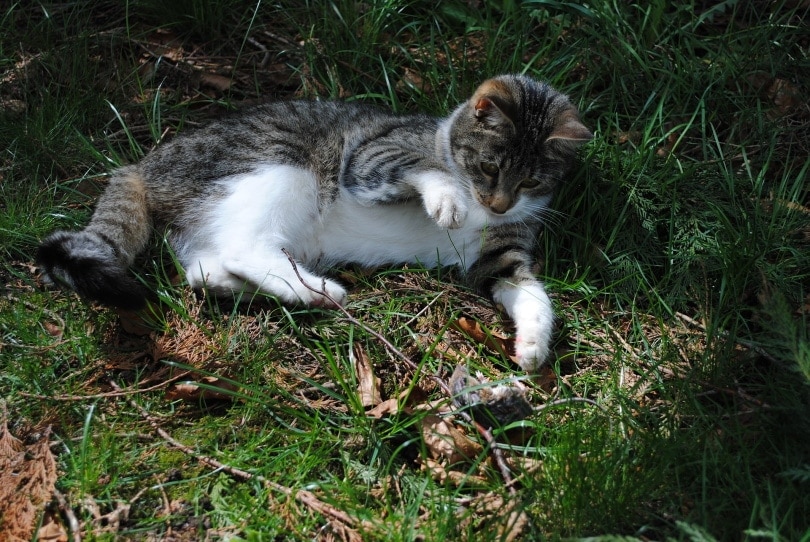
Parasites
Mice can carry several parasites in their bodies, transmissible to cats. Parasites like toxoplasma gondii live in the mouse’s brain, causing them to lose their fear of predators. Just like a domino effect, it then makes them an easy target.
The parasite lives in the rodent’s brain. When the cat eats the parasite unknowingly, it travels to its intestine to multiply. Most cats will not develop clinical disease though some may develop toxoplasmosis.
Symptoms of toxoplasmosis include:
- Fever
- Loss of appetite
- Weight loss
- Lethargy
- Pneumonia
- Inflammatory eye problems
In addition to this dangerous but rare circumstance, your cat can (much more commonly) contract roundworms. Roundworms typically don’t show symptoms, but you might get some clues in some cases.
Symptoms of roundworm include:
- Vomiting
- Loose stools or diarrhea
- Weight loss
- Pot-bellied appearance
- Dull, lackluster coat
- Live worms in feces
If you suspect something just isn’t right after your cat eats a mouse, it’s best to get them examined by your vet.
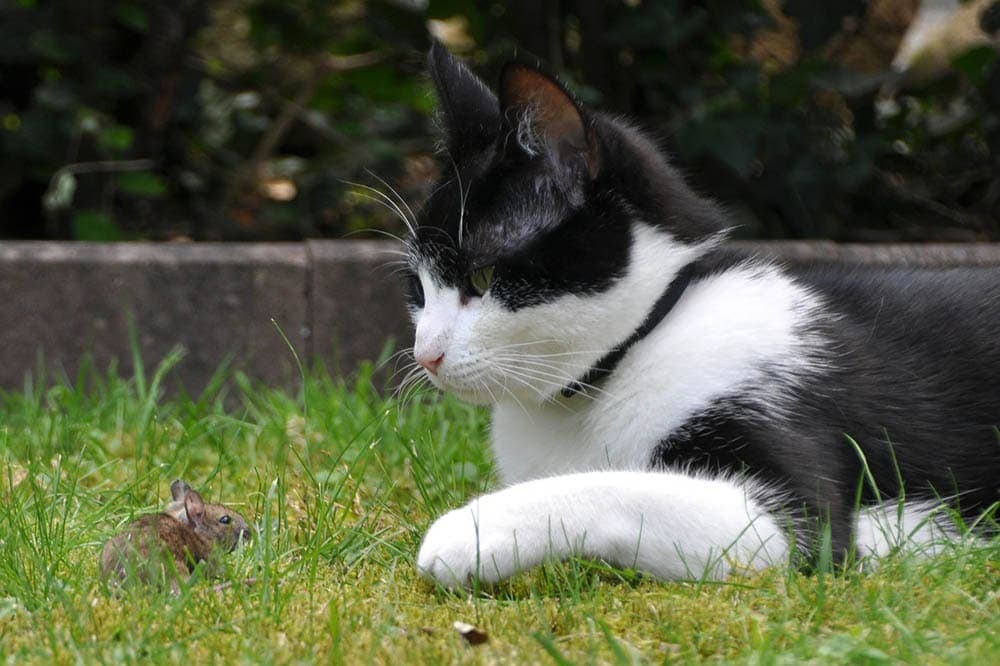
Benefits of Cats Eating Mice
In a perfect scenario, your cat ate a mouse that is 100% healthy with no parasites or toxicity to mention. Your cat will benefit significantly in this case, but the scenario isn’t plausible.
However, mice are natural prey for cats and other small creatures like moles, birds, and even small reptiles. Eating wild prey gives your cat the right amount of nutrients from all parts of the body, including bones, organs, and muscle tissue.
Cat’s bodies are literally designed to break down these materials. In fact, cats get most of their moisture content from the prey they eat in the wild. So, they thrive on protein, amino acids, fatty acids, and taurine in every way.
Housecats have it considerably easier than their wild cousins. Some cats even kill by mistake, simply playing with the prey, opposed to viciously attacking. But unless a cat is feral, they shouldn’t ever eat live prey as a main dish. The necessity just isn’t there for domesticated cats.
Why Does My Cat Try To Give Me Dead Mice?
It isn’t unusual to see your cat give up an offering to its human friend. Your cat might sneak a dead mouse into your bed—or lay it by your front door. And while you can’t understand why they would do this, there is actually a pretty darling reason for it.
In the wild, mother cats will hunt and bring back their kill for their cubs to teach them the fundamentals of hunting and to make sure they’re nourished. So, every time your cat hands you their latest kill, they are taking care of you the same way they would their own kind.
So, you can see how that might melt your heart—despite how disgusting it is.
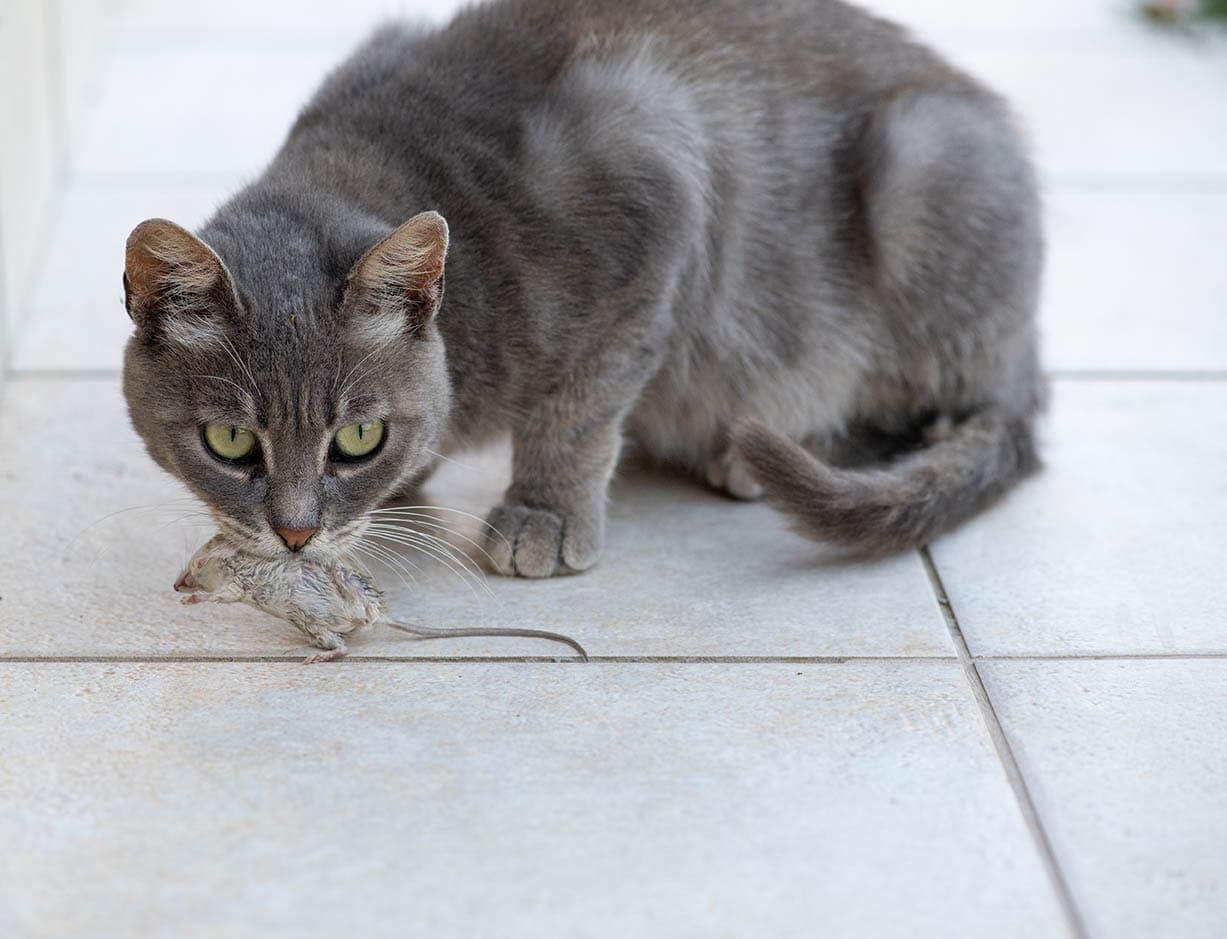
The Verdict
A healthy mouse wouldn’t be detrimental to your cat’s health. In fact, it would be quite beneficial. But wild mice carry far too many illnesses and feeding your cat a live domesticated mouse is plain cruel. So, let’s just say—no, your cat shouldn’t eat a mouse.
However, if you have a cat with a super high prey drive, it might be inevitable that your cat kills mice. When you find the mouse, it’s best to dispose of it entirely. Also, get your cat to the vet if they exhibit any symptoms that indicate illness.
See Also:
Featured Image Credit: 165106, Pixabay



